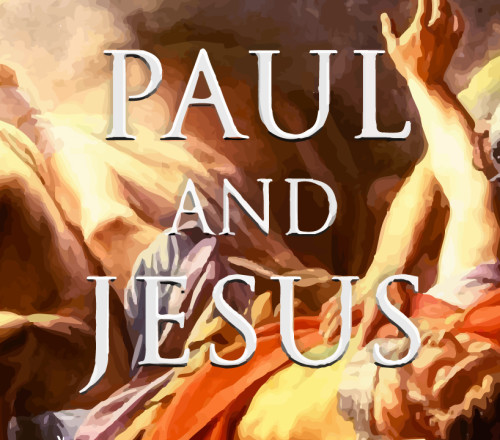Rabbi Tovia Singer – Bridegroom of Blood
So Zipporah took a flint, cut off her son’s foreskin, and threw it at Moses’ feet. Then she said, “You are a bridegroom of blood to me!” Exodus 4:25
[sc_embed_player fileurl=”https://truth2u.org/wp-content/uploads/Audio/Truth2U%20-%20Tovia%20Singer%20-%20Bridegroom%20of%20Blood.mp3″ autoplay=”true” loops=”true”]
[sg_popup id=2]





Great show, I like what you all had to say. I just wanted to throw something out there though. There are certain passages in scripture which seem to me that part of the story is missing, like this passage in Genesis. I have to wonder if the whole story was covered more at some point then lost, such as in the book of Jasher. i know it isn’t considered cannon, yet it is mentioned in Joshua 10:13, and 2 Sam 1:18. The book of Jasher that i found (don’t know if it is legit) say’s in Chapter 79:8-12
8 And Moses rose up to go to Egypt, and he took his wife and sons with him, and he was at an inn in the road, and an angel of God came down, and sought an occasion against him.
9 And he wished to kill him on account of his first born son, because he had not circumcised him, and had transgressed the covenant which the Lord had made with Abraham.
10 For Moses had hearkened to the words of his father-in-law which he had spoken to him, not to circumcise his first born son, therefore he circumcised him not.
11 And Zipporah saw the angel of the Lord seeking an occasion against Moses, and she knew that this thing was owing to his not having circumcised her son Gershom.
12 And Zipporah hastened and took of the sharp rock stones that were there, and she circumcised her son, and delivered her husband and her son from the hand of the angel of the Lord.
Anyway just throwing that out there because I thought it was interesting. Thanks for doing these shows I really enjoy listening.
Wow, what a jewel for me to find! Rabbi Singer’s input is so appreciated as are yours and Jason’s.
I was captured by this passage two years ago while studying. Rabbi’s latter comments on the woman’s high place in the family as the “savior” on a number of occasions in the lives of the patriarchs was spot on!
The wife is afforded an attribute that God reserves for Himself otherwise. We see this quality displayed in Abraham’s Sarah where she follows Abraham’s faith which Romans 4:20 describes in amazing way: “He staggered not at the promise of God through unbelief; but was strong in faith, giving glory to God:” This N.T. verse sheds light on Abraham’s life that we cannot ignore! Nowhere does his faith falter and therefore we must go back and revisit every line of scripture and apply that Truth to Abraham’s life, because we have been taught that he faltered when he concealed the fact that he was Sarah’s husband but God doesn’t find fault with him, but the kings only accuse him of acting improperly. Abraham has assessed the circumstances accurately and he and Sarah together act accordingly to PROTECT THE PROMISE OF GOD which is made to Abraham and can ONLY COME THROUGH ABRAHAM! Sarah is acting in the role of the ETZEER Strong’s 5828, the DELIVERER from harm! She is carrying out Abraham’s plan that correctly judges the circumstances and provides a proper plan to preserve not only Abraham’s life but the life of the two kings while providing a way for God’s promise to remain possible, for without Abraham the promise is dead too! (unless he were to be resurrected after being killed by the kings so they could take Sarah by force)
When you examine the interlinear side by side of Ex. 4:25,26 I see a different scene taking place than I have ever heard described. I can’t find it right now but Gesenius’ Lexicon says that middle eastern women would call their 8 day old infants a “bloody bridegroom” immediately after the circumcision takes place as a kind of legal declaration that they are qualified to marry a daughter of the covenant by this act of circumcision, even though they are mere infants!
Zipporah is not expressing her disdain at Moses! She is effectively in God’s court of law and she is witnessing God’s rightful punishment upon Moses being carried out for his disobedience and she steps in as etzeer/deliverer/helper and she performs the legal remedy for the situation that will allow God to relent from His rightful punishment of Moses. She was simply making a legal declaration in God’s court when she said those words and she was addressing God, not her disdain of Moses! Had she not done so, God’s deliverance of Israel through Moses would have ended right there! She delivered not only Moses that day, but the whole nation of Israel as she fulfilled her God given role of etzeer/helper/deliverer toward Moses before God!
I give credit for my understanding of the etzeer Strong’s 5828 to Skip Moen in one of his Today’s Word installments and my “new glasses” when looking at Abraham’s life to Kathy North, a Torah study friend who pointed out Ro. 4:20 to me and the rest of us that day. The credit for my take on Ex. 4:25,26 was made possible by Blue Letter Bible’s interlinear and their inclusion of Gesenius’ Lexicon in their format at that time. God used all of these things to open my eyes to what I believe was really happening here between God, Moses and Zipporah.
I was not aware of the Book of Jasher’s record of the event and if true, it does seem to paint that very picture of the event, if the version Mary James is using is authentic!
I don’t think it is authentic, nor can be, I was mistaken. I did my homework and found that the verses in Joshua 10:13 and 2sam1:18, are more than likely referring to Torah, and that the book of Jasher means the book of the upright (Torah) So the “book of Jasher” I found online is probably just made up. I read the commentary by Rashi on the verses and it says regarding Joshua 10:13
“Is it not written [already] in the book of Jashar?: This matter is written in the Torah [i.e., the Pentateuch] that Jacob said to Joseph, “His seed [of Ephraim] will fill the nations.” When? On the day that the sun stood still for Joshua, the entire world was filled with Joshua’s fame, and the sun stood still in the midst of the heaven, and it did not hasten to go down exactly a whole day.”
and for 2 Sam1:18 it says “Behold, it is written in the book of the just: In the Book of Gen., which is the book of the just: Abraham, Isaac, and Jacob. Now, where is it implied?“Your hand be on the nape of your enemies.” (Gen. 49:8) What type of warfare is it wherein one directs his hand against his forehead which is opposite his nape? We must say that this is the bow.”
and BTW the commentary of Exodus 4:24-25 agreed with what Rabbi Tovia Singer, said. Just goes to show how important it is to do your homework before you open your mouth(or type) 🙂
I wonder perhaps if Zipporah was just having her husbands back, in this situation. Moses was hurrying to go do right away what G’d said to do.
( what if he didn’t know how to do a circumcision? Could he have been hurrying to get to Egypt before the 8 days was up, so the baby could rest & heal? Maybe he wanted his family there with him? Because isn’t it an honor to be invited to a bris?) Anyways, My version says she touched it to his feet. That sounds respectful. Like she was hurry to fix the situation, so the angel wouldn’t strike anybody down. Because quite honestly, just how far would a baby foreskin go, if thrown? And who in their right mind, would have a bad attitude in front of an angel? In my imagination, i picture her; just speaking clearly, & enthusiastically & fast. Same way i would before I get in trouble with my father when i was a kid. Lol
Although: I’m never quite sure whose in trouble here Moses or the baby. My tanach says he, he, he.So in my mind, it seems to just add to the deadly seriousness of the situation. And i’m glad Zipporah had the spiritual eyes to save her family.
Oh man this is amazing! It is incredible how much I can just read on, comfortable with not really understanding, thank you SO SO SO much for bringing the scriptures alive with explanation!! I really appreciate the hard work put into this Yehovah Imachem 😀
Personally, I fully support Sefer HaYashar (transliterated as Jasher) as being chronologically sidelong to Torah + Joshua + first part of Judges, and being a historical record as contradistinctive to the Torah being a concise instruction on how to and how not to live. Also, while Joshua references “Scroll of the Upright” (i.e. Jasher), Jasher also references “Scroll of the Torah of Moses”. The scribes have preserved this scroll, mostly intact, through the ages. Josephus even paraphrases from it and refers to it as a “scroll laid up in the temple”.
Moses was brought up in the house of Pharoah, was he perhaps not circumcised because of the murder of the male infants/hiding his Hebrew identity? The Midianites were also sons of Abraham through Ismael and Esau and Zipporah’s father was a priest of Midian. He, Yitro, would have been practicing circumcision. Maybe it was Moses and his son who needed circumcision to be obedient to the covenant, before he could perform in the role of YHWH’s servant redeemer.
exodus 24 shows foreshadowing of Christ. Moses types MESSIAH….who had to be killed by God…blood of son is atonement of sin… ….Christ is our bridegroom of blood….Moses bride is Zipporah(has revelation of blood of the son is needed for remission of sin etc. IT IS PACKED WITH MESSIANIC PROPHECY.
Rob, in Sh’mot / Exodus 24 Moses took oxen (kosher animal — human sacrifices are abhorant to G-d) as burnt offerings (nothing to do with sin) and peace offerings (nothing to do with sin) to G-d. Moses took the book of the covenant and read it aloud to the people. They replied, ‘We will do and obey all that G-d has declared.’ Christians say it isn’t necessary to do any of the ETERNAL mitzvot we Jews agreed to follow.
The blood sprinkled in Sh’mot / Exodus 24 was ‘on behalf of the people [on the altar]’ (Targum). Some say that it was sprinkled on the 12 pillars (Abarbanel).
Christians have a real fixation with blood.
The Jewish bible makes it clear that blood is the life force that keeps animals (and humans) alive. It has only one purpose — to be used as a sacrifice (kosher animals, proper sacrifices) otherwise it must be THROWN INTO THE DUST. Thrown out. We are forbidden from eating it (which is the main point in the Torah when it discusses blood).
Torah vehemently FORBIDS human sacrifices.
Vayikra / Leviticus 18:21;
you shall not give any of your offspring to pass through for Molech. And you shall not profane the Name of your G-d. I am the L-rd.
Vayikra / Leviticus 24;
if a man strikes down any human being he shall be put to death.. . . one who strikes a person shall be put to death. . . One law shall be exacted for you, convert and resident alike, for I am the L-rd, your G-d.
See also Deuteronomy 18:10; Jeremiah 7:31, 19: 5; Ezekiel 23:37, 39).
Bamidbar / Numbers 35:33;
“you shall not corrupt the land in which you live, for the blood corrupts the land, and the blood which is shed in the land cannot be atoned for except through the blood of the one who shed it.”
D’varim / Deuteronomy 24:16;
Fathers shall not be put to death because of sons, nor shall sons be put to death because of fathers; each man shall be put to death for his own transgression.
Melachim II / II Kings 14:6;
it is written in the book of the Torah of Moses, which the L-rd commanded saying: “Fathers shall not be put to death for sons, nor shall sons be put to death for fathers, but each man shall be put to death for his own sin.
See also Sh’mot / Exodus 32:31-33; Yirmiyahu / Jeremiah 31:29 [30 in a Christian Bible]; Yechezkel /Ezekiel 18:4,20; and Tehillim / Psalms 49:7.
Aside from the fact that human sacrifice is forbidden, Torah tells us that a proper sacrifice must be of a kosher, domestic animal (the animal is often identified as a bull, a seh (goat or lamb), etc (see Sh’mot / Exodus 13:13; Vayikra / Leviticus 22). Jesus, being a human (or even a demi-god) was obviously not a kosher animal and thus was unacceptable as a sacrifice.
The sacrificial ritual must be administered by a Jewish Priest (see Vayikra / Leviticus Chapters 1-7). According to the accounts in the Greek Testament (Christian Bible), Jesus was crucified by Roman soldiers (Matthew 27:35; Mark 15:24; Luke 23:33; John 19:18, 23).
Torah teaches that sacrifices can only atone for sins committed PRIOR to the offering of the sacrifice. No sacrifice could ever atone for sins committed AFTER the sacrifice was offered. Thus, no sacrifice could ever atone for people born after the sacrifice was offered.
One more time: human sacrifices were forbidden!
So, as you can clearly see that the death of Jesus could never atone for any sin, much less all sins of all people for all time? NOT AT ALL, NEVER! The story is pagan in its entirety and breaks all the laws of Jewish sacrifice.